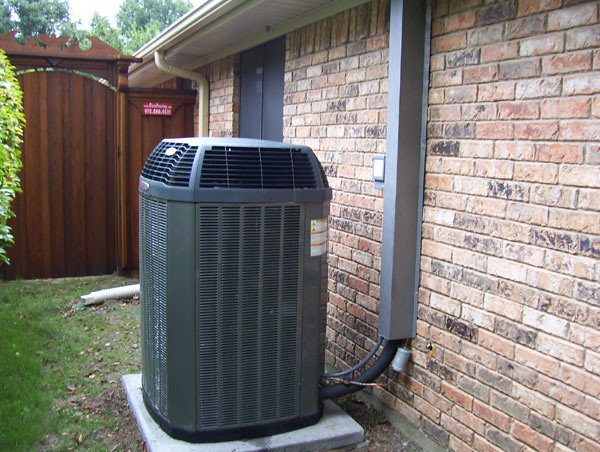When comparing Trane and Bosch air conditioning systems, there are several factors to consider, including price, efficiency, noise level, and reliability. This comprehensive guide will delve into the technical details and provide a hands-on approach to help you determine which brand is the better choice for your home.
Price Comparison: Trane vs. Bosch
Trane air conditioning systems are generally more expensive than Bosch. According to industry data, Trane is approximately 28.2% more expensive than Bosch equipment. This price difference can be a significant factor for homeowners on a tight budget.
To break down the price comparison further:
| System Capacity | Trane Price Range | Bosch Price Range | Price Difference |
|---|---|---|---|
| 2-Ton | $3,500 – $5,000 | $2,500 – $3,800 | $1,000 – $1,200 |
| 3-Ton | $4,000 – $6,000 | $3,000 – $4,500 | $1,000 – $1,500 |
| 4-Ton | $4,500 – $7,000 | $3,500 – $5,200 | $1,000 – $1,800 |
| 5-Ton | $5,000 – $8,000 | $4,000 – $6,000 | $1,000 – $2,000 |
When considering the installation costs, the price difference can range from $1,500 to as much as $2,400 between a Trane XV18 and a Bosch 1.0 system with comparable efficiency, technology, and warranty.
Efficiency Comparison: Trane vs. Bosch
 Image source: Flickr by Jackie Bese
Image source: Flickr by Jackie Bese
Bosch air conditioning systems generally have higher SEER (Seasonal Energy Efficiency Ratio) ratings compared to Trane. SEER is a measure of the cooling efficiency of an air conditioner or heat pump, and a higher SEER rating indicates greater energy efficiency.
Here’s a detailed comparison of SEER ratings between Trane and Bosch:
| System Capacity | Trane SEER Range | Bosch SEER Range |
|---|---|---|
| 2-Ton | 16 – 22 | 18 – 24 |
| 3-Ton | 16 – 22 | 18 – 24 |
| 4-Ton | 16 – 22 | 18 – 24 |
| 5-Ton | 16 – 22 | 18 – 22 |
In the 2, 3, and 4-ton sizes, Bosch consistently outperforms Trane in terms of SEER ratings. Even in the 5-Ton size, Bosch has the advantage when comparing 2 out of the 3 Trane air handler matchups.
Noise Level Comparison: Trane vs. Bosch
Noise level is another important factor to consider when choosing an air conditioning system. Bosch air conditioners are generally slightly quieter than Trane models.
The operational sound levels for Bosch air conditioners range from 54 dB to 68 dB, while Trane air conditioners have a sound range of 57 dB to 76 dB.
To put these numbers into perspective, a normal conversation typically ranges from 50 dB to 60 dB, and a quiet library is around 40 dB. So, both Trane and Bosch air conditioners operate within a relatively quiet range, but Bosch has a slight advantage in terms of lower noise levels.
Reliability Comparison: Trane vs. Bosch
Both Trane and Bosch are known for their reliable and durable air conditioning systems. However, when it comes to reliability, it’s essential to consider the warranty coverage and the reputation of the HVAC contractor responsible for the installation and ongoing maintenance.
Trane offers a 10-year limited warranty on their compressors and a 10-year limited warranty on their heat exchangers. Bosch, on the other hand, provides a 10-year limited warranty on their compressors and a lifetime limited warranty on their heat exchangers.
It’s important to note that the warranty coverage is only as good as the HVAC contractor’s ability to properly install and maintain the equipment. Choosing a reputable and experienced contractor can significantly impact the long-term reliability of your air conditioning system, regardless of the brand.
Hands-on Approach: Trane vs. Bosch
To determine whether Trane or Bosch is the better choice for your home, consider the following hands-on approach:
-
Assess Your Cooling Needs: Evaluate the size of your home, the number of rooms, and the desired cooling capacity. This will help you determine the appropriate system size for your needs.
-
Obtain Quotes: Contact local HVAC contractors and request quotes for both Trane and Bosch air conditioning systems. Compare the prices, efficiency ratings, and warranty coverage.
-
Evaluate Noise Levels: If noise is a concern, schedule a time to visit a home with a Trane or Bosch system installed and assess the noise levels in person.
-
Research Contractor Reputation: Thoroughly research the HVAC contractors providing the quotes. Check their reviews, licensing, and experience to ensure they can properly install and maintain the equipment.
-
Consider Energy Savings: Calculate the potential energy savings based on the SEER ratings and your local utility rates. This can help offset the initial cost difference between Trane and Bosch.
-
Prioritize Your Needs: Weigh the factors that are most important to you, such as price, efficiency, noise level, or warranty coverage, and make your decision accordingly.
By following this hands-on approach, you can make an informed decision on whether Trane or Bosch is the better air conditioning system for your home.
Conclusion
In summary, when comparing Trane and Bosch air conditioning systems, Bosch generally offers higher SEER ratings, lower noise levels, and a more affordable price point. However, Trane is known for its high-quality equipment and long history in the HVAC industry.
Ultimately, the best choice depends on your specific needs, budget, and preferences. By considering the technical details and following a hands-on approach, you can make an informed decision that will provide your home with efficient and reliable cooling for years to come.
Reference:
– Bosch vs. Trane, Mitsubishi, Lennox, Carrier
– Trane vs. Bosch Heat Pumps
– Trane vs. Bosch Variable Speed Units
